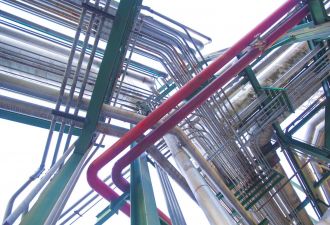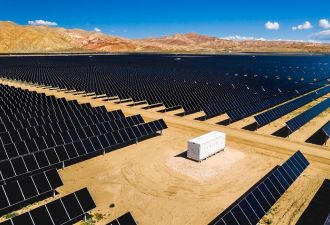Innovalight looks like a smart, successful company.
The firm has a real, working silicon ink photovoltaic technology that adds value to the bottom line of solar module makers. The company was agile enough to pivot from aspirations of being a module manufacturer to providing a material through a licensing model. And Innovalight signed up a number of tier one and tier two Chinese customers in the module market.
The platform license business model is novel and seems to be working. Innovalight provides their silicon ink at a nominal cost -- that's not the primary source of their revenue. The licensing model is structured so that Innovalight's customers pay a fee for every wafer produced that uses the Innovalight special sauce. And with a world market of approximately five billion silicon wafers -- there's a large and growing total available market.
The value of the Innovalight product is that it fits gracefully into a customer's production process. One process step is added at the front end, after the wafer texturing step, and the Innovalight ink step is integrated into the customer's production line.
It looked like they were doing everything a VC-funded technology startup should do -- executing on their business plan while growing fast and efficiently.
And as per Michael Kanellos' reporting, DuPont announced that they had acquired Innovalight on Tuesday.
And for that accomplishment, the Innovalight management now reports to the DuPont corporate hierarchy and their investors get a return of maybe 1.2X?
Those are hardly VC returns to brag about, but that's what this looks like.
Here's the language from the Harris & Harris (NASDAQ: TINY) release:
Harris & Harris Group made its initial investment in Innovalight in April 2006. As of March 31, 2011, Harris & Harris Group valued its position at $3,920,428. Harris & Harris Group expects to receive up to approximately $5.4 million in this transaction.
Note the term "up to approximately $5.4 million." That suggests an earnout of some sort -- so the $5.4 million isn't even a sure thing.
A smart cleantech VC colleague said that it looked like "the company was bought for slightly more than the total money in (assuming a 1X liquidation preference, which is probably a pretty safe assumption)."
Kanellos also looked into the history of Innovalight and Harris & Harris. In April 2006, the firm put $2.5 million into Innovalight, according to this SEC filling. That translated to 16.7 million shares. In November 2007, another SEC filing was issued. Harris & Harris said the value of its investment in Innovalight was reduced to $3.2 million as of September 30, 2007. A month later, it invested $1.99 million more into the company.
So in all, the firm placed $4.5 million into the company ($2.5 million plus $2 million) and sold its share for $5.4 million. Granted, Harris & Harris made these investments in the firm before its business model switch in 2008 and they are only one of several investors, but it's an interesting indication.
In all, Innovalight raised $53.5 million in three investment rounds in 2006 ($7.5 million), 2008 ($28 million) and 2010 ($18 million) not including an initial round that was not memorialized in a release . If the same math holds true, that means the sale price might be close to $64 million if the first round was somewhat small.
It also obtained around $3 milion in grants from the Department of Energy.
A serial entrepreneur colleague expressed a strong bias against materials deals, saying Innovalight is a materials deal and materials deals pay 1X to 2X. He also added that the PV industry did not like their business model, so they had to get out. That's arguable, given the business deals won by the firm.
He added that Innovalight wants to extract cents per wafer based on its proprietary material, and there is no way the Chinese vendors will do that -- they have too many other options for high efficiency cells that just mean buying capital equipment and having no ongoing costs associated with license fees of proprietary material.
Terms of the deal weren't disclosed. Innovalight Chief Executive Conrad Burke told me that he, the employees, and the investors were happy and that the deal outcome was positive in a phone conversation last night. The company has raised about $60 million in VC since its founding.


